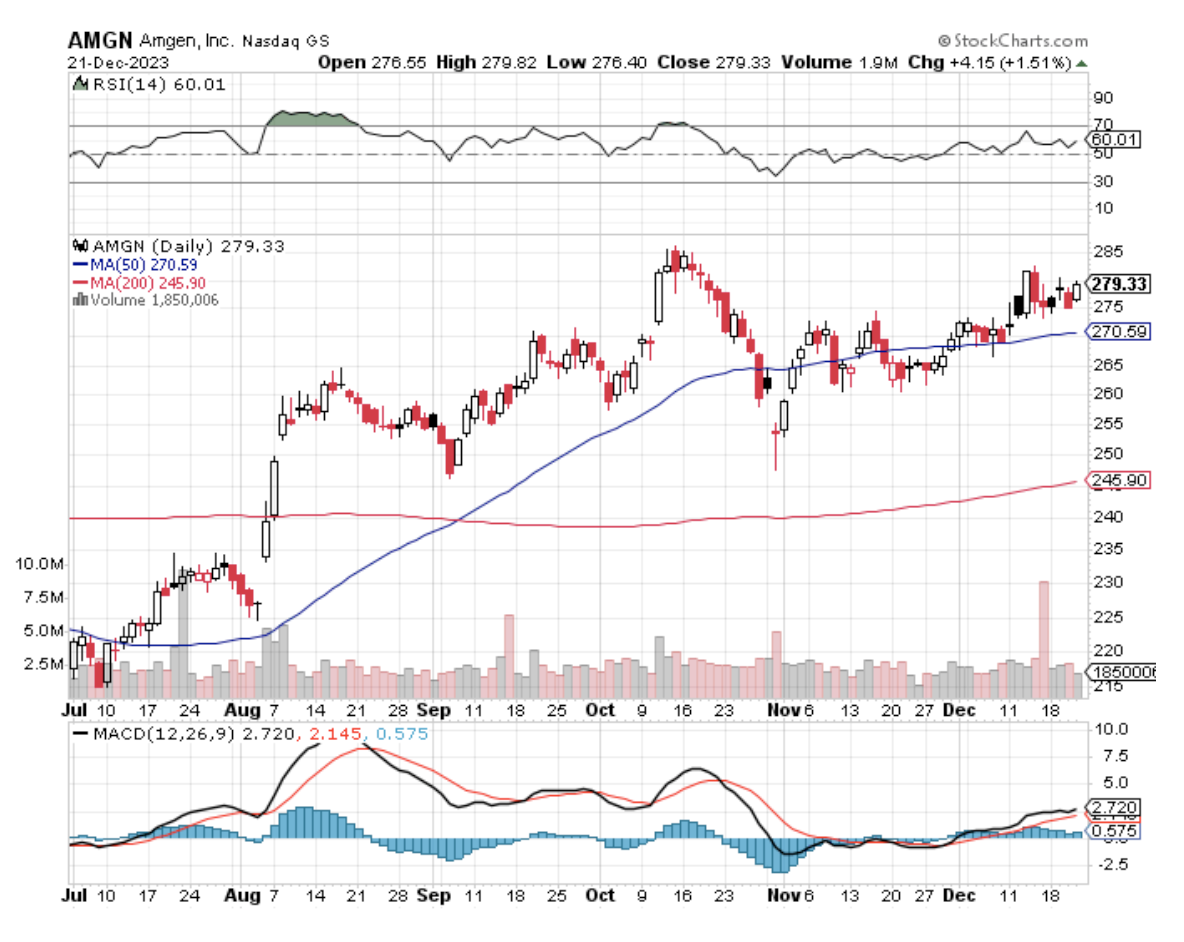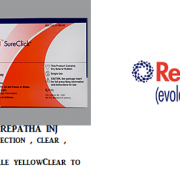A Marathon, Not A Sprint
Navigating the stock market, where fortunes are made and lost faster than a New York minute, can be as exhilarating as it is nerve-wracking.
And when you're hunting for that quick win, that short-term stock buy that'll make your year, you realize you're playing a game where even the big guns like Warren Buffett don't always have the magic crystal ball.
But let's pivot a bit. What about when you're not sweating under a cash crunch — when you can afford to play the long game?
That's when you shift your sights to those long-term compounders, the kind that churn out robust returns on capital like a well-oiled machine. Here, initial valuations play second fiddle to the long-term prospects.
This is where Amgen (AMGN) struts onto the stage. It's not just any old player in the biotechnology and healthcare arena; it's a front-runner with a knack for keeping its coffers brimming and its profitability soaring.
In terms of therapeutic innovation, Amgen is a leader in the fields of oncology, inflammation, neurology, and pulmonary diseases. Their biosimilar practice is also on the rise, churning out replicas of blockbuster drugs like AbbVie’s (ABBV) Humira and Genentech’s (DNA) Herceptin.
Essentially, investing in Amgen is like finding a gold mine in your backyard – and then realizing there's oil under there, too.
Now, let's talk numbers because that's where the rubber meets the road. Amgen's moat-worthy drug franchises make it as solid as a rock for those seeking stability in their cash flows, especially when economic clouds are gathering.
And in the healthcare segment, it's akin to building your house on a rock – it withstands economic storms.
Amgen is known for its industry-leading profitability, flashing its A+ grade like a badge of honor. Their 11% return on total capital and a jaw-dropping 134% return on equity? That's not just good; it's like winning the financial Olympics.
Over the last decade, Amgen's total return of 218% didn't just outdo the S&P 500; it left peers like Pfizer (PFE), Roche (RHHBY), and Gilead (GILD) in the dust. Sure, AbbVie is still ahead, but that's mostly thanks to their Humira magic.
Fast forward to the present, and Amgen's showing no signs of slowing down.
Their total revenue shot up by 4% YoY to $6.9 billion in the third quarter, courtesy of a surge in volumes across their star products. We're talking double-digit growth in BLINCYTO, EVENITY, Repatha, and Nplate. This is like watching a relay race where every runner is Usain Bolt.
Peeking into the future, Amgen's pipeline is a treasure trove of potential.
The company has six first-in-class oncology assets and three FDA Breakthrough Therapy designations. Mirroring Novo Nordisk's (NVO) success with Ozempic, Amgen’s wrapped up Phase 2 studies for their obesity contender, Maridebart cafraglutide.
But here's where it gets even more interesting. Amgen's leap into multi-specific drugs, particularly with tumor treatment AMG 193, is like stepping into a sci-fi novel – it's groundbreaking, it's futuristic, and it just might revolutionize drug delivery.
Let's not forget the FDA's priority review of tarlatamab for small-cell lung cancer. This isn't just good news; it's a potential game-changer, a sign that Amgen might just be first across the finish line in this high-stakes race.
Of course, the recent acquisition of Horizon Therapeutics adds another feather to Amgen's cap, expanding its rare disease portfolio. The incoming drugs from this deal, including Tavneos, Tepezza, KRYSTEXXA, and UPLIZNA, are in the early stages of their lifecycle, making them ripe for growth.
However, every silver lining has a cloud. The integration of Horizon Therapeutics carries its own set of risks, and Amgen's legacy drugs like Enbrel and Otezla face the ticking clock of declining sales.
We also can’t gloss over the elephant in the room – Amgen's ballooning long-term debt, expected to hit a whopping $65 billion by year-end. The recent downgrade of Amgen's credit rating to BBB is like a cautious tap on the shoulder, a reminder to tread carefully.
But don't let that dampen your spirits. Amgen's 3.3% dividend yield is as solid as it comes, with management showing a vote of confidence with a 5.6% raise for the upcoming Q1 2024 payout.
The company's history of rewarding shareholders through share buybacks – a 19% reduction in share count over five years is nothing to scoff at either.
So, where does that leave Amgen's valuation? At a current price of $275 and a forward PE of 14.8, it's not exactly a bargain basement, but it's far from sky-high. It's in that sweet spot where quality meets value.
For long-term investors who value stability and growth, consider adding Amgen to your portfolio playbook.



